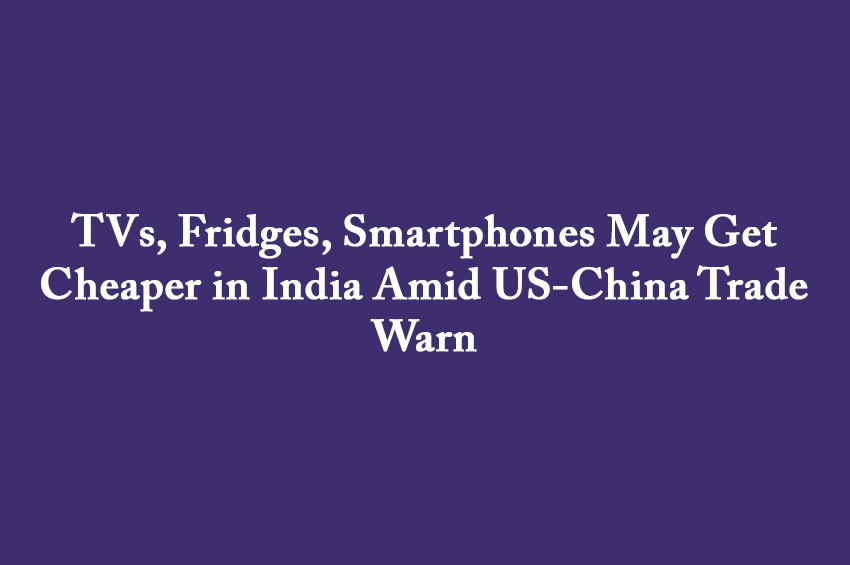Winning Bizness Desk
Mumbai. Due to the ongoing trade war between the United States and China, several Chinese electronic component manufacturers are offering up to 5% discount to Indian companies. This move comes amid fears of reduced demand in the US market, where increased tariffs are making Chinese goods more expensive.
Indian electronics manufacturers are considering passing on a part of this discount to customers in order to boost demand. As a result, the prices of popular consumer electronics such as TVs, refrigerators, and smartphones could go down in the Indian market.
Demand Worries Prompt Chinese Suppliers to Act
Industry experts believe that with rising tariffs, Chinese goods in the US are becoming significantly more expensive. This may reduce their demand and impact sales. Facing pressure from declining demand, Chinese component makers are now trying to expand their presence in alternative markets like India by offering attractive discounts.
India Among Largest Importers of Chinese Electronics
India imports the highest volume of electrical and electronic items from China. These include smartphones, laptops, televisions, power supply systems, and various electronic components. In 2022, the total value of these imports stood at $30.63 billion.
Tariff Impact: $100 Item to Cost $225 in US
Under the newly imposed tariffs, the cost of Chinese goods in the US is set to rise steeply. For instance, an item worth $100 in China would now cost $225 after a 125% tariff in the US. This sharp increase is likely to reduce American consumer interest in Chinese products, prompting Chinese exporters to focus on other countries.
White House Reacts to China's Position
Following the announcement of increased tariffs, White House Press Secretary Carolyn Leavitt stated, “If you strike America, President Trump will strike back harder.” This statement highlights the aggressive stance being taken by the US administration in response to what it views as unfair trade practices by China.
Efforts to End Trade War Ongoing but Challenging
Both the US and China are reportedly looking to resolve the trade dispute through negotiations. However, experts say that finding a solution won’t be easy due to the strained diplomatic ties between the two nations. Wendy Cutler, Vice President of the Asia Society Policy Institute and former US trade official, remarked that China appears disinterested in making any deal at the moment.
Trump’s Reciprocal Tariff Policy
On April 2, former US President Donald Trump announced reciprocal tariffs on nearly 100 countries, stating, “Today is Liberation Day — something America has long awaited.” Trump emphasized that if any country imposes high tariffs on US goods, America would respond with equal or higher tariffs in return.
On April 9, Trump postponed the implementation of reciprocal tariffs for 90 days for all countries except China. He raised the tariff on Chinese goods to 125%, citing China’s lack of respect for global trade norms. Trump added that the era of exploiting global markets at America’s expense was over.


